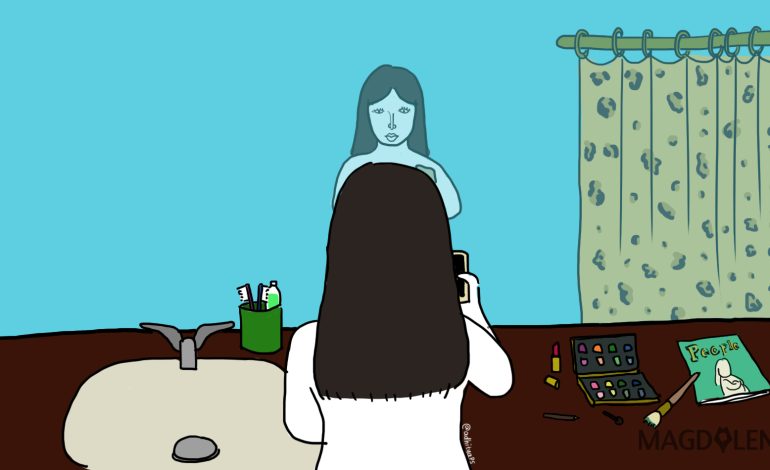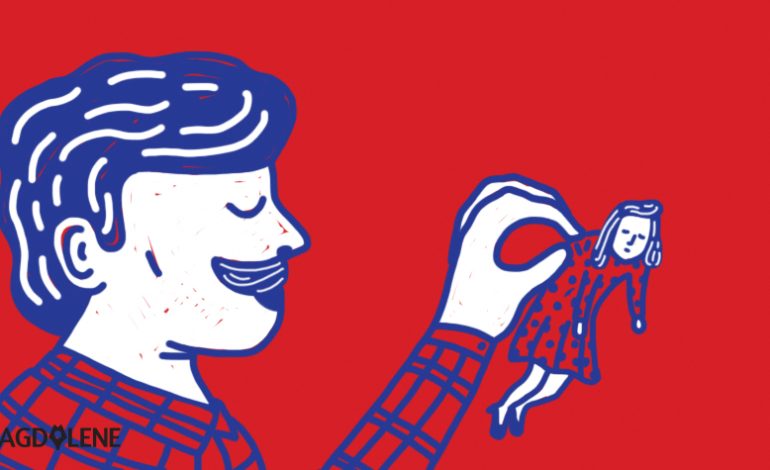Feminism on Tumblr: Third Wave Feminism in Action?

Feminazi. Man-hating. ‘Kurang ngewe’ (sex deprived).
If you’re a feminist, I’m sure you’ve heard these remarks before. And if you have been a feminist for the past years, then you may be a third wave feminist. Third wave feminism marked its beginning in the early 1990s. Seen as a response to the second wave feminism, it recognizes women of colors, ethnics, nationalities, religions, and cultural backgrounds, expanding feminism to include the diverse identities.
The Internet plays a role in the growth of third-wave feminism. In her study, Christine Petit of University of California-Riverside observed how social movement networks on the Internet translate into actual coalitions and cooperation between social movement.
“While organizations are located in places, and their components are place-dependent, the organizational logic is placeless, being fundamentally dependent on the space of flows that characterizes information networks,” Petit said.
“[…] The more organizations depend, ultimately, upon flows and networks, the less they are influenced by the social context associated with the places of their location.” She also noted how Internet reality reflects social reality.
Tumblr is part of the Internet. Feminism on Tumblr is a rough image of what is happening outside of the platform and it can be unabashedly vulgar in interpretation. From protruding breasts underneath t-shirts saying “This is What a Feminist Looks Like”, illustrations of menstruation leaks on panties – or lack thereof – to costumes depicting vagina during marches.
Unlike many other feminists, I first discovered third wave feminism on Tumblr. It was also on Tumblr that I stumbled across criticisms against it. From Tumblr, I learned about “slut walk,” which arose from the notion that whatever appearance a women has – her clothing to be exact – it does not justify sexual assault of any form, whether catcalling or rape. Started in 2011, SlutWalk was popularized by model and actress Amber Rose and it has become a transnational movement of protest marches calling for an end to rape culture in which victim blaming and slut-shaming of sexual assault victims are rampant.
The question being asked now is: do third wave feminists seek supremacy of its voice by mimicking patriarchy?
Take their view on the hook-up culture, for example. Lisa Wade, the author of American Hookup, notes in her research that women tend to adopt supposed masculine traits such as promiscuity in the male-dominated hookup culture.
What happens when third wave feminists engage themselves in hookups? Wade does not elaborate further in her book whether, for instance, being promiscuous engage women in the hookup culture, but she explains that the trait is, in fact, rewarded. In other words, it has become rationalized to the extent that it has become a rational behavior. Yes, in the times of social media, rewarding cannot get any easier, and on Tumblr, the more a third wave feminist exhibits aggression, the more rewarded they are.
Ironically, the more we rationalize these behaviors, the more we appear to normalize sexually aggressive behaviors. It is no wonder that a society blaming lack of sex for critical sensibility is a society confusing cheap vulgarity for sexual liberation.
Can we then view third wave feminism using this consideration (e.g. embodying masculine traits such as aggression in presenting themselves as feminists)?
I then pondered on what is at the end of the cycle. I suppose the cycle ends at victimhood. Victimhood is another characteristic of third wave feminists on Tumblr. Third wave feminists presenting themselves as victims have drown out the voices of aspiration of feminism. It is as though racing to become victims legitimizes feminists and the ideology itself.
Sociologists Bradley Campbell and Jason Manning told The Atlantic, “Domination is the main form of deviance, and victimization a way of attracting sympathy, so rather than emphasize either their strength or inner worth, the aggrieved emphasize their oppression and social marginalization.”
Victimhood has become a shared experience among third wave feminists, be it on Tumblr or elsewhere, and it promotes social solidarity. It remains a question whether it compensates the lack of courage, integrity, and dignity, in our collective narrative.
Can I identify with third wave feminism, specifically on Tumblr? I don’t mimic patriarchy and I don’t oppress. I tend to perceive the means of oppression as the means to oppress among the oppressed and to enforce a hierarchy of its own.
To me, identifying as a third wave feminist means identifying with the aspiration of third wave feminism. Identifying as a third wave feminist means fostering gender equality, not reversing gender oppression. Identifying as a third wave feminist means reflecting on our collective narrative and better it in order to bring forth our best selves – a woman. That is feminism in action.
Marisa Duma has written for The Jakarta Globe, Time Out Jakarta, Hang Out Jakarta, and Kemang Buzz. She is doing Knowledge Management and currently works for a research center.






















